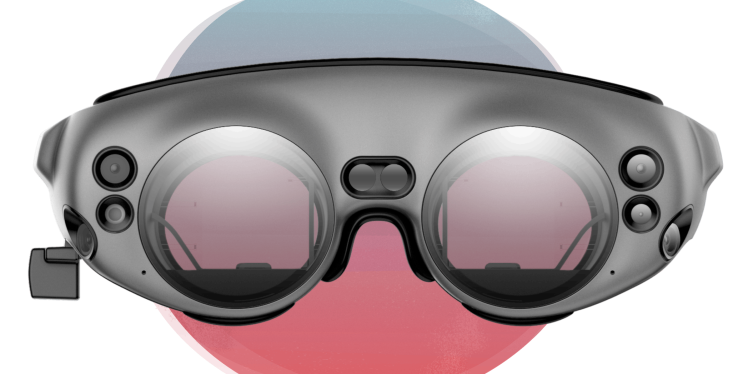The Magic Leap 1 augmented reality headset hasn’t exactly been the world-changing success its developers intended. Today, the company announced that it’s making the difficult choice to lay off employees, cut costs, and refocus more heavily on enterprise customers so its next-generation model Magic Leap 2 will actually reach the market.
While the company hasn’t disclosed the scope of either the layoffs or the enterprise pivot, they’re not entirely surprising. Despite funding from major tech companies such as Google and the support of top U.S. wireless carrier AT&T, Magic Leap has struggled to win broad adoption from consumers or developers, in large part because of its $2,300 to $3,000 pricing. After focusing its initial “Creator Edition” model on developers, it relaunched the headset last December and focused on promoting enterprise applications. In recent months, the company reportedly hoped to be acquired for $10 billion, which seemed highly unlikely even before coronavirus outbreaks began across the world. Today’s announcement blamed the outbreaks for decreasing access to investment capital, forcing the internal changes.
Magic Leap’s announcement comes at a pivotal point for the mixed reality industry. Increasing demand for virtual reality headsets to facilitate work-from-home meetings and in-person online collaboration hasn’t yet been matched by consumer uptake for augmented reality glasses like Magic Leap’s. However, some AR headset makers are seeing major upticks in orders for glasses that can be used as tools for coronavirus screening or cooperative medical care. Generally, both VR and AR appear to have bright futures, but creating apps for Magic Leap’s standalone platform requires additional development work compared with Windows- and Android-based rivals.
For the time being, Magic Leap says that it’s working to negotiate revenue-generating enterprise deals for its platform, and changing its operations and spending to “ensure delivery of Magic Leap 2.” The company has openly discussed its second-generation headset since the launch of the original model, suggesting that physical prototypes already existed under cloths in its CEO’s office, but hasn’t provided specifics as to the new model’s features and changes. However, AT&T partnered with the company to provide 5G know-how and network infrastructure, implying that the headset might go from using Wi-Fi and a large puck-shaped wearable processing unit to a partially or substantially cellular design.
Among those laid off was Graeme Devine, who previously co-founded Trilobyte and created popular computer games The 7th Guest and The 11th Hour. He also worked on id Software’s Quake III Arena, and had a games-focused role at Apple. At Magic Leap, Devine served as chief creative officer and senior vice president of games, apps, and creative experiences. Devine indicated in social media posts that Magic Leap had decided to pivot to hardware, which could have broader implications for its software platform.
We’ve reached out to Magic Leap for additional details on the scope of the layoffs, and will update this article with those details if and when we know more. Bloomberg reports that “people familiar with the matter” have confirmed that around 1,000 people will be affected, or roughly half the company’s workforce, resulting in the winding down of Magic Leap’s consumer business.

